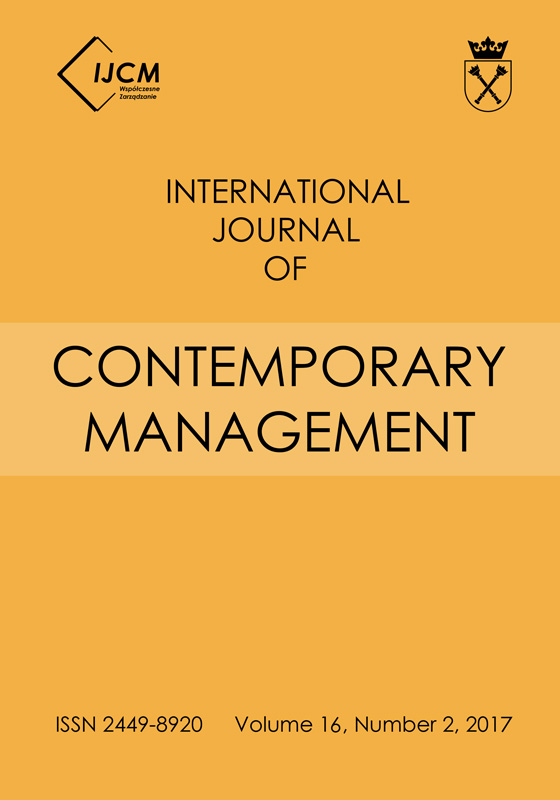How Destructive Social Aspects Inhibit Innovation in an Organisation
How Destructive Social Aspects Inhibit Innovation in an Organisation
Author(s): Dariusz Turek, Agnieszka Wojtczuk-TurekSubject(s): Business Economy / Management
Published by: Wydawnictwo Uniwersytetu Jagiellońskiego
Keywords: Innovative Workplace Behaviours; Counterproductive Work Behaviours; Organisational Justice; Equity Theory
Summary/Abstract: Background. The innovative behaviours of employees constitute one of the key elements for explaining companies’ market competitiveness. Therefore, studying and understanding the mechanisms which trigger individual innovative activity form an important area of analyses owing to which it is possible to design practical recommendations for managerial personnel of organisations.Research aims. Drawing on equity theory, this study describes and explains the relationship between counterproductive work behaviours (CWB), organisational justice and innovative workplace behaviours (IWB). In the proposed model explaining the influence of counterproductive work behaviours on creative activity in the workplace, the organisational justice construct was used – as the mediator of the relationship.Methodology. The study was conducted anonymously in 2014–2015 on a group of 207 employees studying at post-graduate studies at the Warsaw School of Economics. To assess the direct effects and estimation theoretical model, structural equation modelling was used with AMOS version 23. For the assessment of the indirect effects, the SPSS macro PROCESS was used, which allows for testing mediation effect. Correlation analyses weer also used.Key findings. The research confirmed a significant statistical relationship between innovative work behaviours and all studied variables: counterproductive work behaviours and organisational justice. On the basis of the analysis using the structural equation model it can be stated that the following factors influence innovative behaviours: counterproductive work behaviours have indirect influence on innovative workplace behaviours via organisational justice. The research shows that both organisational justice and counterproductive work behaviours provide a useful perspective which may facilitate understanding of the factors determining the occurrence of innovative activity in an organisation and may support creative behaviours of HRM and managers.
Journal: International Journal of Contemporary Management
- Issue Year: 16/2017
- Issue No: 2
- Page Range: 267-294
- Page Count: 28
- Language: English

